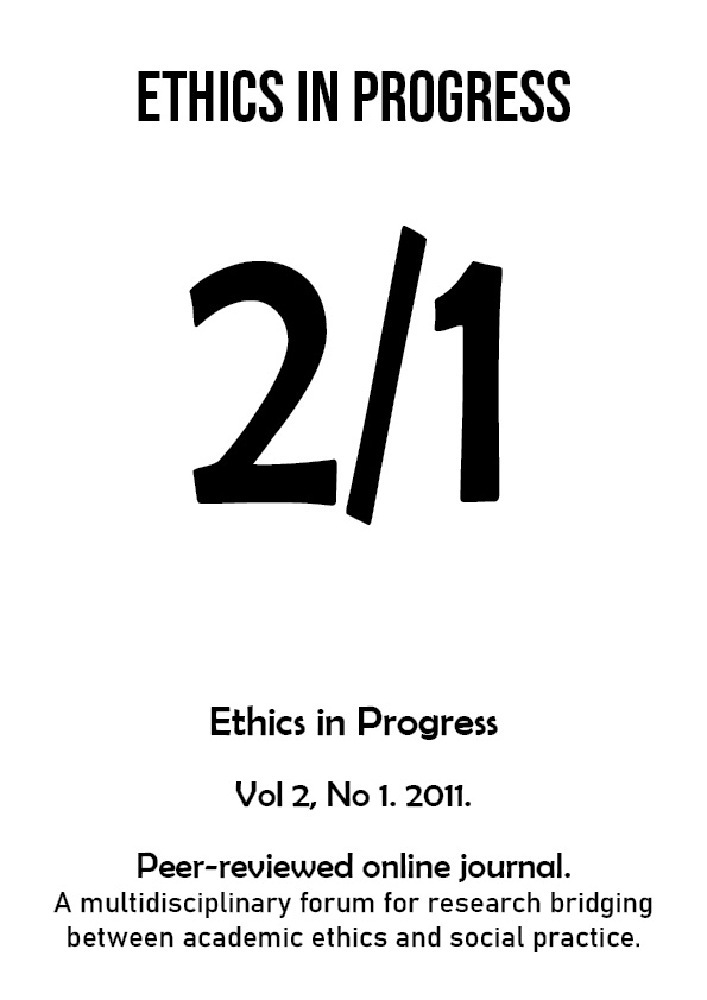Abstract
Problematic and complex aspects of democratic life ? such as the teaching of the concept of civil liberties, the spreading of responsible participation and pluralistic dialogue, the mutual understanding of different cultures and individuals, and the fulfilment of a common civil life based upon shared rules, procedures, and reasonable dialogue ? are not yet solved and certainly need to be frequently revisited and reviewed
References
Casarin, P. (2005). Valenze formative e potenzialit? emancipative delle pratiche filosofiche. In: Cosentino, 2005a, pp. 104-122.
Cosentino, A. (ed.) (2002). Filosofia e formazione. 10 anni di Philosophy for Children in Italia(1991-2001). Napoli: Liguori.
Cosentino, A. (2004). Effetti emancipativi della comunit? di ricerca. Pratiche filosofiche (2, 1), pp. 45-50.
Cosentino, A. (ed.) (2005a). Pratica filosofica e professionalit? riflessiva. Napoli: Liguori.
Cosentino, A. (2005b). Teoria e pratica nella formazione dei docenti. Il modello della ?P4C?. In: Santi, 2005, pp. 63-80.
Cosentino, A. (2005c). La pratica del filosofare per lo sviluppo di una professionalit? riflessiva. In: Cosentino, 2005a, pp. 9-45.
Dewey, J. (1916). Democracy and Education: an Introduction to the Philosophy of Education. New York: Macmillan.
Dewey, J. (1933). How we think. Boston: Heat.
Dewey, J. (1938). Logic: the Theory of Inquiry. New York: Holt, Rinehart and Winston.
Franzini Tibaldeo, R. (2011). Un?idea di responsabilit?. L?etica jonasiana e le sue prospettive. Turin: PhD diss., University of Turin.
Fraser, N.-Honneth, A. (2003). Redistribution or Recognition? A Political-Philosophical Exchange. London-New York: Verso.
Honneth, A. (1992). Kampf um Anerkennung. Zur moralischen Grammatik sozialer Konflikte. Frankfurt am Main: Suhrkamp.
Honneth, A. (1994). Pathologien des Sozialen. Die Aufgabe der Sozialphilosophie. Frankfurt am Main: Fischer.
Jonas, H. (1979). Das Prinzip Verantwortung. Versuch einer Ethik für die technologische Zivilisation. Frankfurt am Main: Insel. Eng. tr. The Imperative of Responsibility. In Search of an Ethics for the Technological Age. Chicago: University of Chicago Press, 1984.
Lipman, M. (1985). Philosophical practice and educational reform. Journal of Thought (20, 4), pp. 20-36.
Lipman, M. (1995). Caring as Thinking. Inquiry: Critical Thinking Across the Disciplines (15, 1), pp. 1-13.
Lipman, M. (2003). Thinking in Education (second edition). Cambridge: Cambridge University Press.
Lipman, M. (2008). A Life Teaching Thinking. An Autobiography. Montclair (NJ): Institute for the Advancement of the Philosophy for Children.
Lipman, M.-Sharp, A. M. (1978). Some educational presuppositions of Philosophy for Children. Oxford Review of Education (4, 1), pp. 40-58.
Martens, E. (1999). Philosophieren mit Kindern. Eine Einführung in die Philosophie. Stuttgart: Reclam.
Morin, E. (1973). Le paradigme perdu: la nature humain. Paris: Seuil.
Morin, E. (1991). Introduction ? la pensée complexe. Paris: ESF.
Nussbaum, M. C. (2010). Not for Profit. Why Democracy Needs the Humanities. Princeton: Princeton University Press.
Peirce, C. S. (1935-58). The Fixation of Belief. In: Id., Collected Papers. Cambridge, Harvard University Press.
Pulcini, E. (2009). La cura del mondo. Paura e responsabilit? nell?et? globale. Torino: Bollati Boringhieri.
Rothstein, R. (2008). Grading Education: Getting Accountability Right. Washington (D.C.): Economic Policy Institute.
Santi, M. (ed.) (2005). Philosophy for Children: un curricolo per imparare a pensare. Napoli: Liguori.
Schön, D. A. (1983). The Reflective Practitioner. New York: Basic Books.
Striano, M. (2002). Insegnare a pensare. Un?esperienza di formazione a pensare il pensiero. In: Cosentino, 2002, pp. 137-147.
Striano M.-Oliverio S. (ed.) (2007). A. M. Sharp. ?Philosophy for Children?, un percorso educativo attraverso la filosofia. Iride (20, 51), pp. 249-269.
Taylor, Ch. (1992). Multiculturalism and ?the Politics of Recognition?. An Essay. Princeton: Princeton University Press.
Vygotskij, L. S. (1934). Thought and Language. Cambridge (Mass.): The Mit Press, 1986




